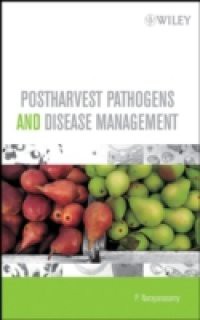POSTHARVEST PATHOGENS AND DISEASE MANAGEMENT Postharvest diseases caused by microbial pathogens account for millions of dollars in losses of both durable and perishable produce products every year. Moreover, with consumers increasingly demanding minimally processed vegetables and fruits--which can be invaded by human pathogens--there is an imperative need for suitable protective measures to provide pathogen-free commodities that are free from, or contain only acceptable levels of, chemical residues. Providing details of both conventional and modern molecular techniques applicable for the detection, identification, and differentiation of field and storage microbial pathogens, Postharvest Pathogens and Disease Management: * Discusses diseases of both durables and perishables during transit and storage * Provides a basic understanding of the effects of handling and storage practices as well as field conditions and product susceptibility on the development of postharvest diseases * Reveals, as a cautionary note, the potential hazards of mycotoxins with carcinogenic properties that can contaminate fruits and vegetables * Contains detailed information derived from elucidative evidence and disease data in order to explain the infection process and subsequent stages of disease development * Helps readers to avoid conditions that favor disease incidence and spread * Includes real life examples of disease management strategies to help readers develop effective disease management systems suitable for different ecosystems * Emphasizes the importance of integrating several different effective methods in tandem, including the development of cultivars with resistance to postharvest diseases; the selection of suitable analytical methods; and the effective use of biocontrol agents and chemicals * Presents protocols for numerous techniques and basic methods, making the book a distinctive and highly useful teaching and research tool Postharvest Pathogens and Disease Management offers readers insight into the principles and methods of avoiding and managing postharvest diseases of fruit and vegetable products in an efficient, economical, and environmentally feasible manner, allowing producers to sell safer, higher-quality produce to the public and prevent the losses associated with postharvest disease.

